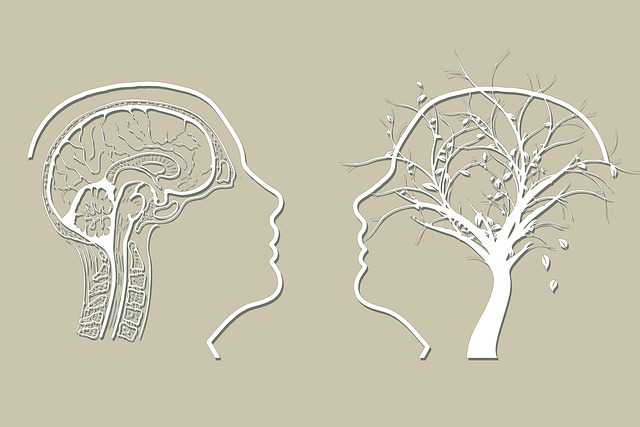Cultural sensitivity in mental healthcare, exemplified by Aurora Postpartum Depression Therapy, is crucial for effective treatment, especially for new mothers from diverse backgrounds. A comprehensive Mental Health Policy prioritizing cultural awareness trains providers in cross-cultural communication and social skills, fostering open discussions about postpartum depression. Aurora's approach integrates traditional beliefs, promotes public education, and reduces stigma, ultimately enhancing care effectiveness and addressing cultural barriers to achieve broader public health goals.
In today’s diverse society, cultural sensitivity is paramount in mental healthcare. Understanding and respecting diverse cultural backgrounds is crucial for effective treatment, especially in specialized areas like Aurora Postpartum Depression Therapy. This article explores cultural sensitivity as a cornerstone of mental health practice. We delve into its significance, the positive impact of cultural competence on therapy outcomes, and provide practical strategies to foster culturally sensitive environments, ensuring inclusive and effective care for all.
- Understanding Cultural Sensitivity in Mental Healthcare
- The Impact of Cultural Competence on Aurora Postpartum Depression Therapy
- Strategies for Culturally Sensitive Practice in Mental Health Care
Understanding Cultural Sensitivity in Mental Healthcare

Cultural sensitivity in mental healthcare is a critical aspect that often determines the effectiveness of treatment. It involves recognizing and respecting the unique cultural beliefs, values, and practices of individuals seeking therapy. In the context of Aurora Postpartum Depression Therapy, this means understanding the specific challenges faced by new mothers from diverse backgrounds. Every culture has its own ways of expressing and coping with emotional distress, which can significantly impact how a patient perceives and engages in mental health services.
A comprehensive Mental Health Policy Analysis and Advocacy approach should prioritize cultural sensitivity to ensure inclusive care. This includes training healthcare providers in cross-cultural communication and understanding the role of social skills training in fostering effective interactions. By promoting positive thinking and embracing diverse perspectives, mental health professionals can create a supportive environment that encourages open discussions about sensitive topics like postpartum depression. Such an approach not only benefits individual patients but also contributes to broader public health goals by addressing cultural barriers to care.
The Impact of Cultural Competence on Aurora Postpartum Depression Therapy

In the context of Aurora Postpartum Depression Therapy, cultural sensitivity is not merely an additive component but a transformative force. Incorporating cultural competence significantly enhances therapeutic outcomes for diverse patient populations. By understanding and respecting each client’s unique cultural background, mental healthcare providers can tailor their approaches to meet specific needs. This personalized care ensures that traditional beliefs and practices are integrated into treatment plans, fostering trust and engagement. For instance, cultural sensitivity might involve recognizing the impact of community support systems or incorporating specific therapeutic techniques rooted in a patient’s cultural heritage.
Beyond individual therapy sessions, promoting cultural awareness in mental healthcare extends to initiatives like Public Awareness Campaigns Development and Social Skills Training. Educating the public about emotional well-being promotion techniques that resonate across cultures can reduce stigma and encourage early intervention. Through such comprehensive strategies, Aurora Postpartum Depression Therapy aims to create an inclusive environment where diverse communities feel empowered to seek help and experience meaningful recovery.
Strategies for Culturally Sensitive Practice in Mental Health Care

In the realm of mental healthcare, cultural sensitivity is paramount to ensure effective treatment and support for diverse populations. For professionals like those offering Aurora Postpartum Depression Therapy, understanding and adapting practices to respect individual cultural contexts can significantly impact patient outcomes. One key strategy involves fostering communication strategies that are inclusive and non-judgmental. This includes actively listening, asking open-ended questions, and being mindful of language barriers or differences in expression styles across cultures.
Additionally, building trust and rapport by demonstrating genuine interest and respect for patients’ cultural identities can boost confidence and encourage open dialogue. Techniques such as incorporating mindfulness meditation practices tailored to cultural backgrounds can create a safe and calming environment, fostering relaxation and self-awareness. By integrating these approaches, mental health professionals not only enhance their ability to connect with clients from varied backgrounds but also contribute to the development of effective, culturally sensitive therapies like Aurora Postpartum Depression Therapy.
Cultural sensitivity in mental healthcare is not just a preference, but an essential component of effective treatment, as evidenced by the positive impact on Aurora postpartum depression therapy. By understanding and incorporating diverse cultural perspectives, practitioners can create a more inclusive environment that enhances patient outcomes. Strategizing culturally sensitive practices enables healthcare professionals to bridge gaps in care, ensuring that every individual receives personalized support tailored to their unique background. This approach is pivotal in fostering trust, improving engagement, and ultimately revolutionizing mental health services to meet the needs of a diverse population.














